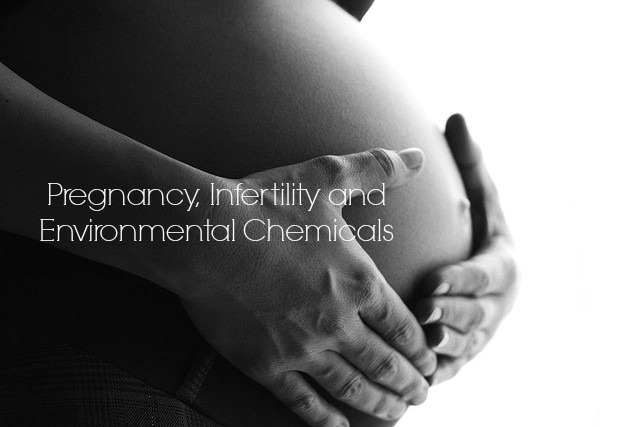Pregnancy is a thing of the past in my world.
My oldest just turned 13. How could that possibly be? He’s 5’5″ and pretty much towering over my 5’3″ self. I’m watching him closely now. Watching and waiting for changes. It’s going too fast and I don’t want to miss a thing.
I think back to the days when we were trying to get pregnant and the many years of infertility. So long ago, yet the memories are ingrained.
Creating our family didn’t come easily. We were forced, as many are, to place a tremendous amount of thought into whether or not we wanted to bring children into this world. Infertility will do that to you. We made a conscious decision to start a family and found our way through both adoption and natural childbirth.
Now here we are-13, 11 and 9 years later-in a world which my boys will soon inherit. A world filled with toxins, chemicals and other poisons that are making our children sick.
New Report Says Environmental Chemicals Could Cause Infertility and Other Health Issues
The nation’s largest groups of obstetricians and fertility specialists just came out with a report saying our daily exposure to environmental chemicals could be harming our reproductive health.
I’m not sure this is new news? But it is coming from a group with a lot of klout so hopefully it will attract more mainstream attention.
The report also said that virtually every pregnant woman is exposed to at least 43 different chemicals and some of those chemicals can make their way directly to the fetus.
And it’s not just about women and pregnancy. The report pointed out that pesticide exposure in adult men has been linked to sterility and prostate cancer.
Most Americans Have Traces of BPA in Their Urine
The report uses BPA, or bisphenol-A, a hormone disrupting chemical, as an example. BPA can be found in the lining of some metal cans, on cash register receipts and in some plastics.
According to the Breast Cancer Fund-
Exposure to BPA, used to make the epoxy-resin linings of metal food cans, has been linked in lab studies to breast and prostate cancer, infertility, early puberty in girls, type-2 diabetes, obesity and attention deficit hyperactivity disorder. Childhood exposure is of concern because this endocrine-disrupting chemical can affect children’s hormonal systems during development and set the stage for later‐life diseases.
The president of the American College of Obstetricians and Gynecologists, Dr. Conry, is advising common sense.
Common Sense Isn’t Enough
“There’s only so much people can do as individuals and families to limit chemical exposures,” said University of Washington public health dean Dr. Howard Frumkin, an environmental health specialist not involved in the report
That’s right-there’s only so much we can do. Using common sense isn’t enough.
These are the real issues: Why should the burden be on a pregnant woman or a family trying to conceive? Why isn’t our government protecting us? Why are these products allowed on the shelves of our stores filled with chemicals that prevent us from getting pregnant or are making our children sick?
My Infertility and Pregnancy
I think back to those many years of trying to get pregnant. The bouts of crying and conflicting emotions when a friend or family member became pregnant. A feeling of happiness for those I loved and a sadness for what I didn’t have.
Common sense is my middle name. I spent those years struggling with infertility and eating well and taking care of myself as best I could. But I still wasn’t getting pregnant. The rational side of me knows that there are many different causes of infertility and the environmental component is just one piece of the puzzle. Pregnancy finally did happen, but nevertheless I still pause and wonder if my years of struggling with infertility could have been avoided if our consumer products were safe once they hit the shelves.
And then I think about all the countless others struggling with the same unexplained infertility and unexplained illness.
It’s enough.
You Can Help
Congress is considering updating our laws on toxic chemicals and as they do it, they need to hear from you, me and thousands of other Americans why this issue should rise to the top of their list of priorities.
Safer Chemicals, Healthy Families is collecting these personal stories to keep the pressure on our elected officials and will hand-deliver them to Congress in Washington this fall.
Answer this question:

